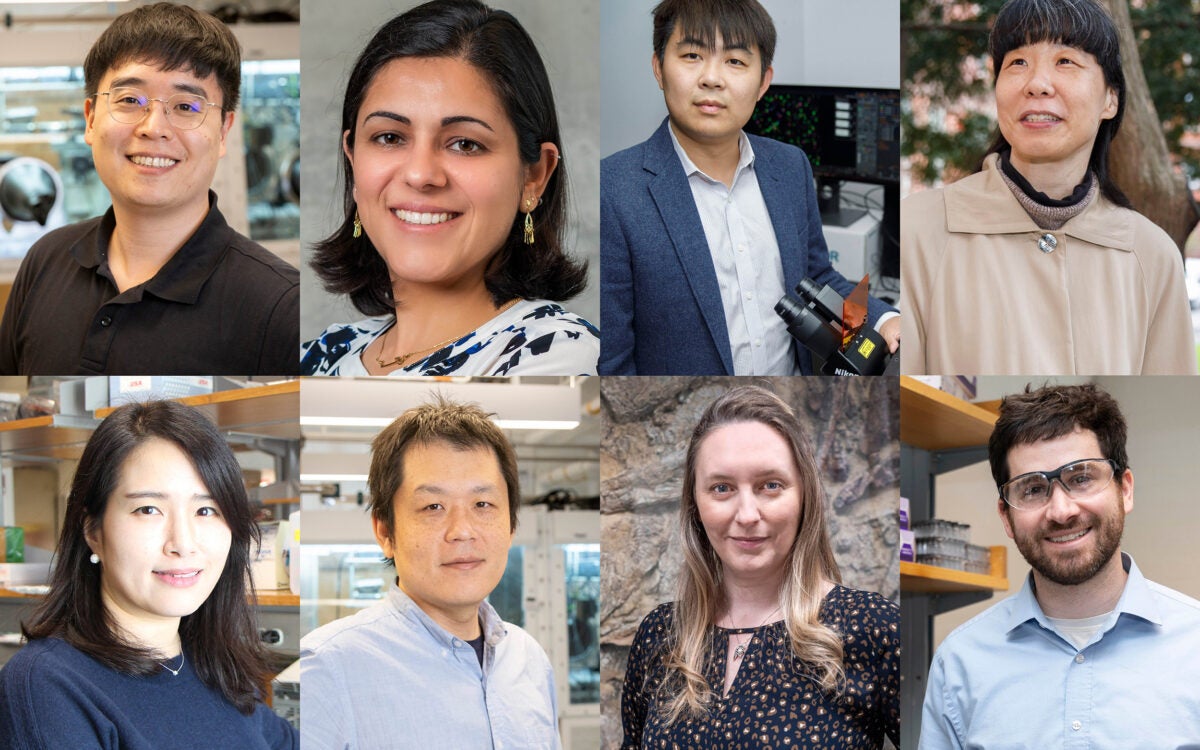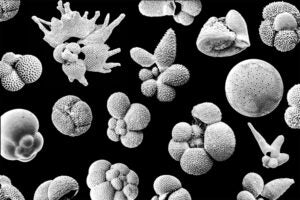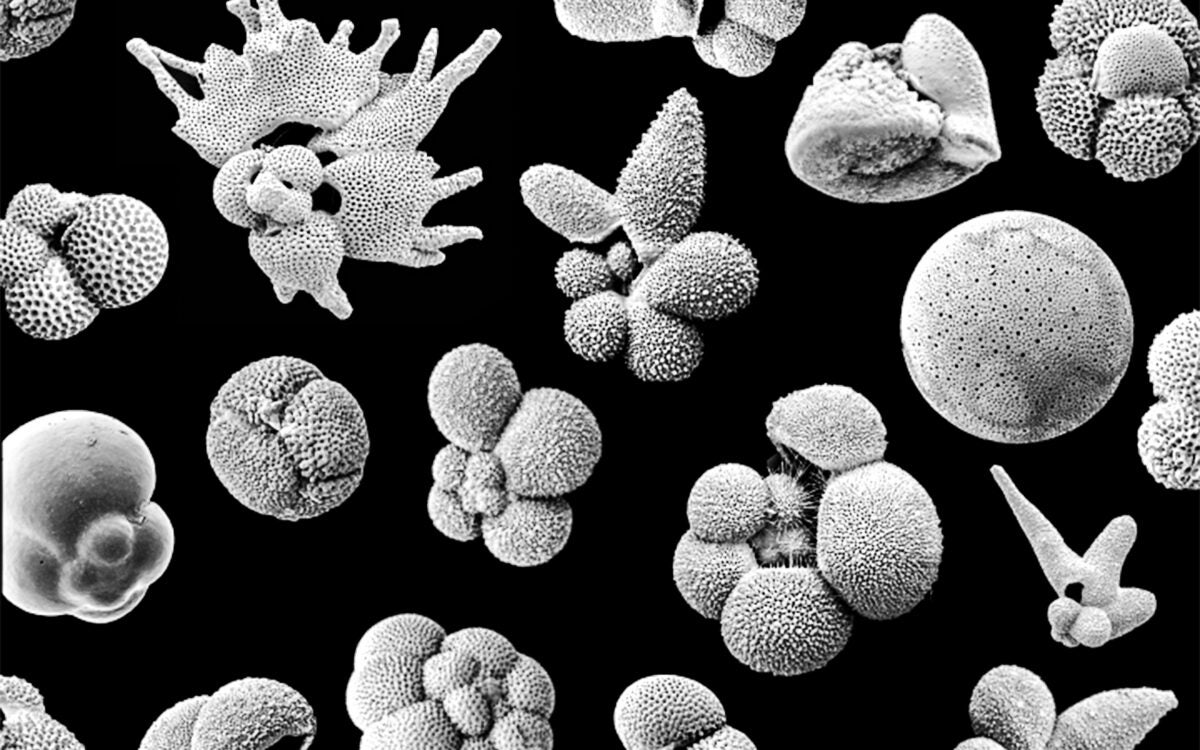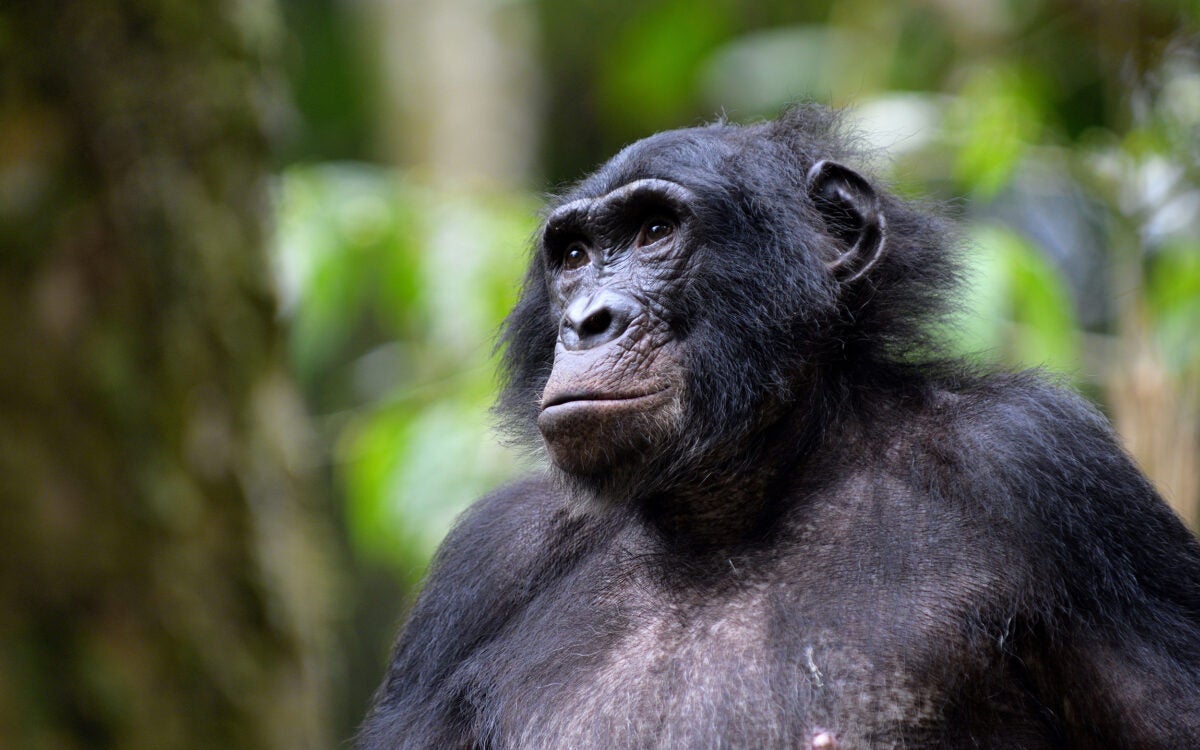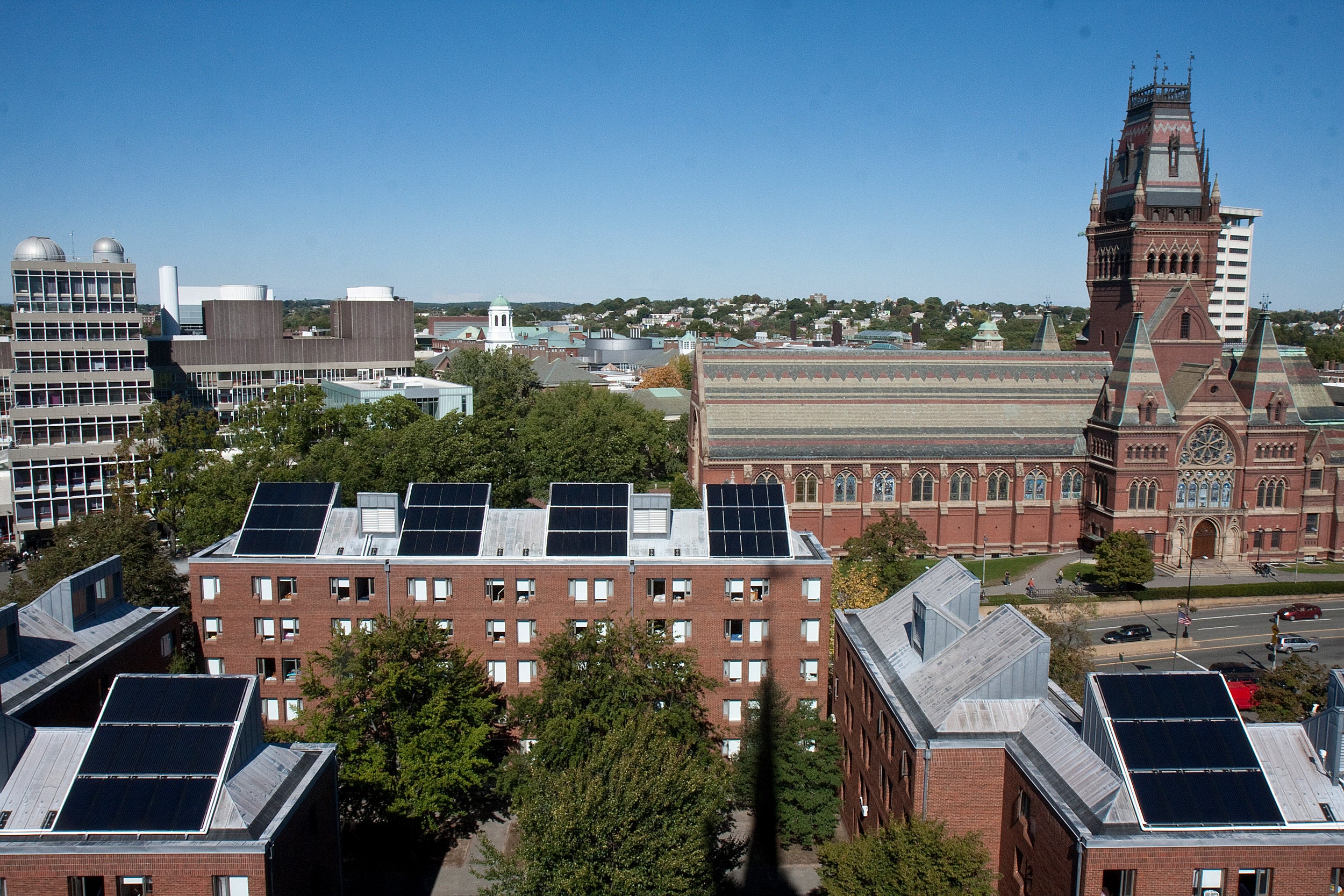
Seven new research projects have been awarded funding in the fourth round of grants from Harvard’s Climate Change Solutions Fund.
Jon Chase/Harvard file photo
New grants for climate solutions
7 winning research projects seek to address current impact, plan for future
Climate change poses two fundamental challenges for society: How will cities and regions adapt to the impact we can already see? And, how can society rapidly transform the way it now creates and consumes energy into a fully renewable clean-energy system?
Seven new research projects, awarded funding in the fourth round of grants from Harvard’s Climate Change Solutions Fund, will use the humanities, engineering, science, and design to tackle these twin challenges all over the world, from hospitals in Boston to indigenous communities in northern Canada, from the coastline of California and floodplains in Missouri to rural villages in Nepal.
“Climate change affects every person on the planet, and Harvard’s efforts in this area can make a profound difference in the years to come,” said Harvard President Drew Faust. “The research we are supporting through the Climate Change Solutions Fund will generate promising new discoveries and insights that will give communities tools to adapt to our changing climate and help society move toward a clean-energy future.”
The fund, a $20 million fundraising priority Faust announced in 2014, aims to accelerate the transition away from fossil fuels. To date, 31 projects have received nearly $4 million, engaging a diverse, multidisciplinary group of research faculty. Faust has also increased the University’s funding for innovative climate research through the Harvard Global Institute and the Campus Sustainability Innovation Fund.
“Complex global problems like climate change require us to collaborate across disciplines to learn from each other and develop stronger solutions that will help to accelerate change,” said Vice Provost for Research Richard McCullough, whose office administers the fund. “Students and faculty across Harvard’s Schools are actively engaged in asking and answering the tough questions we will need to confront as the world aims to transform the way energy is produced and consumed.”
This year’s projects are:
- A New Electrochemical Method of CO2 Capture
Michael Aziz, Harvard John A. Paulson School of Engineering and Applied Sciences
One strategy being considered for alleviating the dramatic rise in carbon dioxide emissions is to capture it from combustion exhaust or from the air. This project will seek to develop and test a new, potentially cheaper, method of carbon dioxide capture using strong alkaline solutions generated by transferring electrons to and from organic molecules. This method has the potential to slash the energy cost of carbon dioxide capture, making it affordable enough to be deployed on a large scale.
- Imagining Retreat: Notes from the Landscape of Adaptation
Sharon Harper, Faculty of Arts & Sciences
Rosetta Sarah Elkin, Graduate School of Design
This highly visual research project will document five global case studies of communities vulnerable to climate change by examining their retreat from hazard-prone areas through the disciplines of landscape architecture, ecology, design, and art. The mix of photography and maps will help engage the public in the notion that retreat can be a generative solution to chronic environmental stress, and will uncover insights that could spark future ways to address these issues elsewhere.
- Health Care in the Heat: Assessing Trends in Heat-Related Health Care Provision and Advancing Heat Preparedness in Boston
Ashish Jha, Harvard Global Health Institute, Harvard T.H. Chan School of Public Health
Aaron Bernstein, Harvard Medical School
This project will use Medicare claims data, the Massachusetts All Payer Claims Database, and data from several Boston-area hospitals to determine if the decline in heat-related mortality in the U.S. is the result of better health care. At present, most health care providers and organizations see climate change as a population health risk, but have not seen why it matters to them personally. This work could help to change that perception.
- California Climate Adaptation Trust Fund Development
Jesse Keenan, Graduate School of Design
As the impact of climate change becomes more immediate, communities will have to invest in a range of resilient and adaptive infrastructure projects that benefit people. Keenan will partner with the state of California and the Federal Reserve Bank of San Francisco to research integrated financial, portfolio, and governance models for financing that state’s climate adaptation and resilience projects. Investigators will explore whether or to what extent income from a cap-and-trade system and other modes of revenue would be enough to support a revolving fund that could partially finance the projects.
- Identifying the Challenges and Technical Pathways Toward a Reliable, Carbon-Free Energy System in the United States
Na Li, Harvard Paulson School
Qinran Hu, Harvard Paulson School
The question of whether greater reliance on solar and wind power would affect the reliability of regional power grids has been a concern in the transition to renewable energy sources. This research will create the first qualitative assessment of the challenges threatening the transmission and distribution of reliable clean-energy sources as well as the resources and technical pathways that could lead to reliable carbon-free energy systems.
- Increasing the Adaptive Capacity of Subarctic and Arctic Aboriginal People to Climate and Sea Level Change Using Innovative, Web-Based Informatics Tools
Jerry X. Mitrovica, Faculty of Arts & Sciences
Indigenous groups are among the populations most vulnerable to rising sea levels and ongoing climate change. This project aims to create a flexible and collaborative web-based tool for the Cree of western James Bay, Canada, to help adapt to a warming world. The tool will record real-time environmental change such as harvesting information, safe travel routes, and additional material.
- Cities for Health: A Web-Based Tool to Identify Vulnerable Populations and Evaluate the Impact of Energy Grid Decisions to Mitigate Heatwave “Hot-Spots”
Augusta Williams, Center for Health and the Global Environment, Harvard Chan School
Jonathan Buonocore, Center for Health and the Global Environment, Harvard Chan School
As climate change triggers more, longer, and harsher heatwaves, heat-related deaths are projected to triple in the Boston region by the end of this century under current greenhouse gas emissions. This project will develop analytical tools that identify building-level and community-level vulnerability to heatwaves, feeding into web-based tools that policymakers, urban planners, and others can use to develop heat adaptation plans. The project also will create a tool that can quickly calculate potential carbon and air pollution reductions, and the associated health benefits of renewable energy and efficiency.
The Climate Change Solutions Fund’s faculty review committee looks for projects representing the range of academic disciplines and research interests across Harvard. Special consideration is given to projects seeking to use the campus as a living laboratory to test ideas, or to produce new insights through the lens of nontraditional disciplines, including the arts and humanities.
The awards follow those of 2017, 2016, and 2015. The fund is supported by the president’s office and the generosity of alumni and others. To learn more about the range of faculty experts involved, visit the presentation Harvard Speaks on Climate Change.
